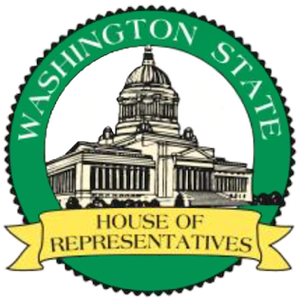The Washington State House Commerce and Gaming Committee (WA House COG) considers issues relating to the regulation of commerce in alcohol, tobacco and cannabis, as well as issues relating to the regulation and oversight of gaming, including tribal compacts.
WA House COG - Committee Meeting
(November 16, 2018)
- USA - Washington
- Washington State House Commerce and Gaming Committee
- WA House COG - Committee Meeting
Friday November 16, 2018 1:30 PM - 3:30 PM
Observed

Observations
WACA, The Cannabis Alliance, and WSLCB update the House Commerce and Gaming committee on the status of the cannabis industry.
Here are some observations from the November 16th Washington State House Commerce and Gaming Committee (WA House COG) Work Session on cannabis policy. Industry and agency representatives updated committee members on the status of the state’s cannabis industry. The committee invited the Washington CannaBusiness Association (WACA), The Cannabis Alliance, and the Washington State Liquor and Cannabis Board (WSLCB) to testify.
My top 3 takeaways:
- The Washington CannaBusiness Association asked the committee for industry reforms.
- Executive Director Vicki Christophersen encouraged the state to shift from issuing violations to a “compliance first” approach (audio).
- Attorney and WACA member Christine Masse described an “overwhelming” engagement at MJBizCon as a frame for her argument for out-of-state ownership of cannabis licenses: “getting…money from a publicly traded company in Canada or possibility of growth are really not available here” (audio).
- Tammi Hill from Cannex Capital spoke about traceability and edibles (audio).
- Hill singled out WSLCB Deputy Director Pat Kohler as a collaborative partner on traceability but elaborated concerns about predictability, consistency, and transparency in the project implementation. She reported licensees are still having trouble accessing and auditing data in Leaf.
- Hill pointed out WSLCB didn’t discuss changing rules for edible shapes or colors during the packaging and labeling workgroup prior to the proposed edibles ban announced in early October. She encouraged creating certainty through consistently defined and enforced rules: “If you can help us and support clear, defined rules for edibles, not only licensees and the LCB but consumers would benefit from that.”
- The Cannabis Alliance testified on barriers to business and research success.
- Cannabis Data Founder Gregory Foster explained problems with traceability vendor MJ Freeway and their frequently amended state contract stating, “All parties are unhappy with the status quo” (audio). Acting Committee Chair Representative Shelly Kloba replied, “How lovely to hear that we have an issue which unites us all.”
- Todd Arkley, an accountant whose firm services more than 100 cannabis licensees, explained few of his clients are profitable. Concerns about company size, limits on where licensees can sell, and a lack of outside investment or ownership is not helping (audio).
- Dr. Sunil Kumar Aggarwal, Co-Director at Advanced Integrative Medical
Science Institute (AIMS), and Mary Brown from SMJ Consulting discussed cannabis and health. Aggarwal spoke to difficulties educating doctors as well as significant barriers to cannabis research (audio). Brown reminded lawmakers about the lack of compliant medical cannabis products on the market and warned against banning edible product types which patients rely on (audio).
- The WSLCB panel updated the committee on the agency’s efforts.
- Justin Nordhorn, the agency’s Chief of Enforcement, described the distribution of agency staff; identified top complaints and violations; and explained the increase in emergency suspensions issued this year (audio, slidedeck).
- Deputy Director Pat Kohler claimed 97% of the contracted features of the traceability system have been developed, but quality assurance testing remains. Compounding delays and vendor performance have forced the agency to prepare contingency plans (audio).
- Director of Legislative Relations Chris Thompson spoke about the agency’s effort to align rule with the Department of Health’s cannabis product testing requirements and the agency’s commitment to improvement (audio).
- Committee members asked about cannabis overproduction, what happens to the license of a failed business, increasing retail outlets, and limitations on investment (audio).